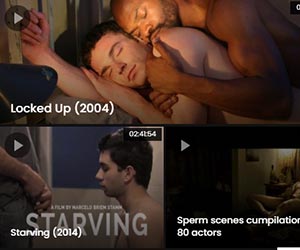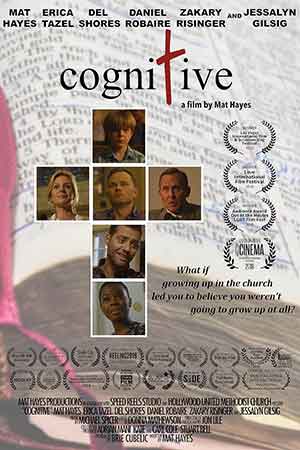The Falls: Testament of Love (2013) – When Faith and Desire Collide
Testament of Love (2013)
“When I made love to him, I discovered the mystery of our harmony… I had found God.”
That’s not the start of an erotic novel – it’s the opening line of Testament of Love (2013), and it instantly tells you this isn’t a typical love story. It’s a story about faith, guilt, and the unbearable tension of loving the wrong person in a world that says your love doesn’t exist.
The film follows RJ and Chris, two former Mormon missionaries who fell in love during their mission. When their secret is discovered, they’re separated – RJ sent home in disgrace, Chris allowed to stay. Years later, RJ lives in Seattle, writing and trying to move on. But when a mutual friend dies, the past returns with a force that neither prayer nor time could suppress.
Faith, Love, and the Fear of God
Testament of Love captures, with quiet honesty, the inner war between faith and identity. Chris, now married with a child, clings to the illusion of being “cured.” But RJ’s return exposes how fragile that illusion really is. Their reunion is a collision between belief and longing – two men trying to do the right thing while denying who they truly are.
One of the film’s most haunting lines comes when Chris admits: “Every time I see a man I’m attracted to, it’s like something inside me is screaming to come out.” It’s not about lust; it’s about survival. This is the kind of pain that can’t be prayed away, no matter how many times you say “Amen.”
The Falls: Testament of Love (2013) – Family, Church, and the Eternal Guilt
The strongest scenes aren’t romantic at all – they’re family confrontations. Chris’s father, the devout patriarch, tells him: “If it shows your loyalty to God, then yes, I want you to suffer.” And that one line sums up everything wrong with religious hypocrisy. The film doesn’t demonize faith, but it shows what happens when religion becomes a weapon against love.
The final act is heartbreaking and quiet. RJ leaves, not because he stopped loving, but because he finally understands he can’t save someone who refuses to be free. Later, he receives a letter from Chris – just three words: “I forgive you.” It’s not a happy ending, but it’s an honest one. And in this world, that’s rarer than miracles.
My Take
Testament of Love is not a movie for everyone. There are no grand speeches, no melodramatic outbursts – just silence, tension, and eyes that have seen too much. The direction is minimalistic, the dialogue deeply personal, and the performances raw enough to feel almost documentary-like.
What struck me most was how it treats spirituality – not with mockery, but with grief. It’s a film that says: maybe God doesn’t hate anyone, but people in His name often do. And that’s the real tragedy.
If you’re looking for a happy ending – there isn’t one. But there’s something better: self-acceptance. And maybe that’s the only testament of love that matters.
If you’ve already seen The Falls: Testament of Love, don’t miss the final chapter of the trilogy —
The Falls: Covenant of Grace (2016)
, which brings closure to this deeply emotional story of faith and redemption.



























